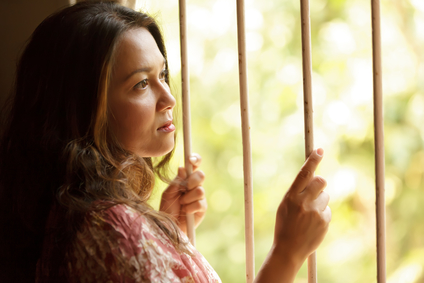It has been nearly a year since Michigan and other states went into shutdowns in response to the Coronavirus pandemic. The last 12 months have been a period of constant shifts, unexpected cancelations, and disappointments. Many have lost jobs, friends, and loved ones. All of that has put pressure on couples trying to make marriage work. Here are some things you can do if it feels like the next stay at home order may mean the end of your marriage.
One Third of Couples Say COVID is Stressing Their Marriage
Taking the necessary steps to protect themselves and their families is taking a toll on American couples. According to a survey performed by the American Family Survey, 34% of married Americans (ages 18 to 55) report that COVID-19 has increased stress in their marriage. This has resulted in a 34% increase in the sale of online self-help divorce agreements.
Not every family feels the impact of the Coronavirus the same way. Disadvantaged families and essential workers are bearing the brunt of the virus response. Many have lost jobs because of industry-wide shutdowns. Those who reported their financial status had gotten worse were far more likely to say COVID 19 was putting stress on their marriage: 45% as opposed to 28% of those whose income remained steady.
Still, the virus is likely increasing conflict even for couples not directly affected by the shutdowns. Stress over ongoing threats like the pandemic creates a physiological response in the fear center of the brain. When stress is ongoing, that fear center remains on high alert for days and months on end. Even though you or your spouse may not be consciously registering the impact, the stress makes it more likely that you will become tired, irritable, anxious, or angry in response to other, everyday stressors.
Pandemic Shutdowns Bring Existing Problems into Focus
It isn’t just the pandemic itself causing stress. While there are very real stresses associated with grief, job insecurity, and health risks, the pandemic shutdowns are also aggravating problems that existed before the Coronavirus made the news, such as:
- Personal habits
- Division of labor within the home
- Differences in hygiene or risk tolerances
- Financial worries
For many couples, these disagreements existed long before the pandemic. However, changes over the past year have made them a bigger part of married couples lives. What was once an annoying habit may now aggravate a risk of illness. Financial concerns that were once manageable may now take on new urgency. Whatever the problems may have been before, they are now inescapable.
Working from Home and Remote Schooling Put Families Face to Face
The Coronavirus has caused much of life to be handled inside the home. Entire industries shifted to working from home over night. Schools closed for months at a time, shifting to remote education which puts more of the burden of education and childcare on parents at home. Shutdowns and stay-at-home orders have made it difficult to get away and get a break from family members who are trying one another’s patience.
In some families, the intensity of living and working in close proximity has reached a breaking point. The restrictive measures needed to combat the virus have created conditions that foster domestic violence and make it harder for the victims of intimate partner abuse to receive help. While shelters and help centers never closed in many areas, the constant presence of an abusive partner has made it harder for survivors to reach out.
How to Respond to Coronavirus Stress at Home
First, if you are experiencing domestic violence in your home, do whatever you can to get help. You can call 9-1-1 when the abuse is happening, or text HOME to 741741 to reach the Crisis Text Line. You can also call the National Domestic Violence Hotline at 1-800-799-7233 or text LOVEIS to 22522 for help.
However, even if the stress has not resulted in violence, you may need help to weather the storm of ongoing shutdowns and restrictions. There are things you can do today to reduce the stress and help your marriage survive the pandemic:
- Avoid assigning blame or criticizing your partner. Speak in terms of your own feelings instead.
- Choose activities you both enjoy, such as a date night in.
- Make space for each other and allow one another privacy.
- Stay connected to external support networks like friends and family.
- Attend to your own mental health with self-care techniques.
- Work with an experienced couples’ therapist to improve communications and coping techniques.
When couples are facing periods of heightened stress, a marriage therapist or counselor can guide them in techniques to reduce that stress and avoid triggering one another. This can improve the chances that you will come out of the pandemic with your marriage intact.
David Stanislaw is a psychotherapist with over 30 years of experience. helps individuals and couples learn strategies for reducing stress within their relationships. Contact David Stanislaw to get help today.


 Recognizing Teenage Anxiety and What to Do About It
Recognizing Teenage Anxiety and What to Do About It Common Treatments for Depression
Common Treatments for Depression Are Childhood Family Patterns Affecting Your Marriage?
Are Childhood Family Patterns Affecting Your Marriage?